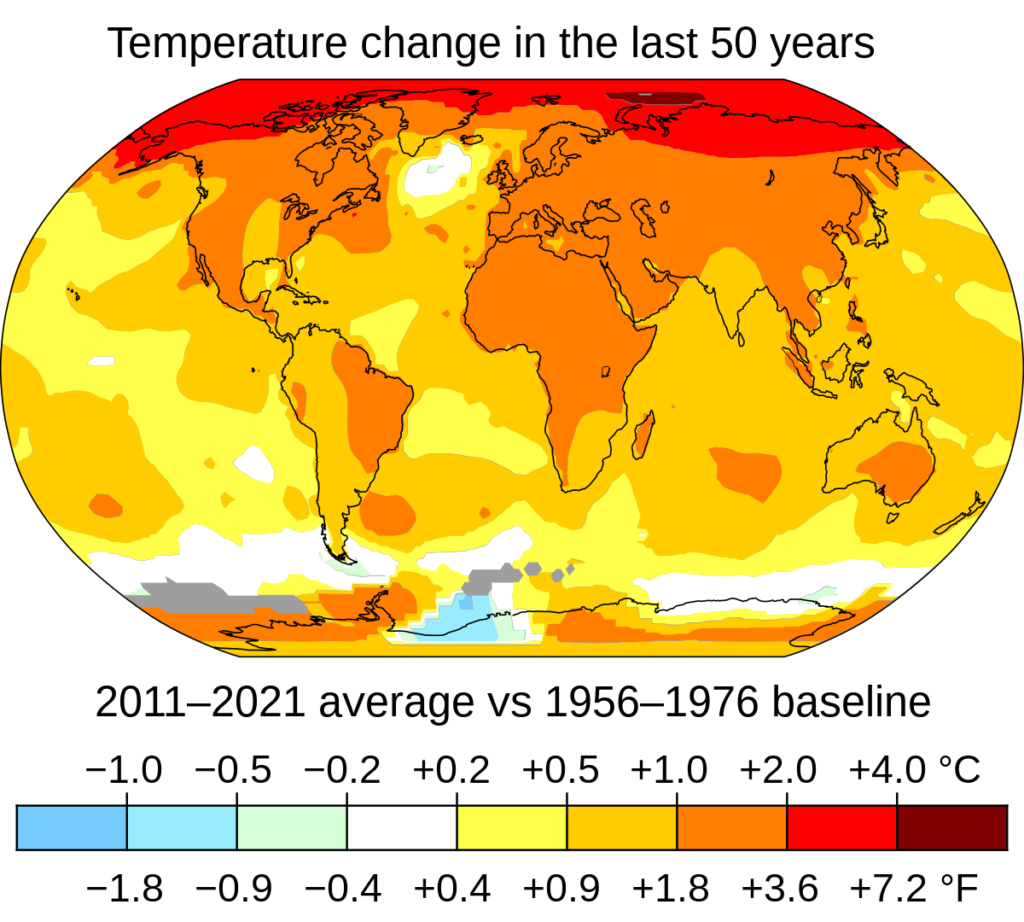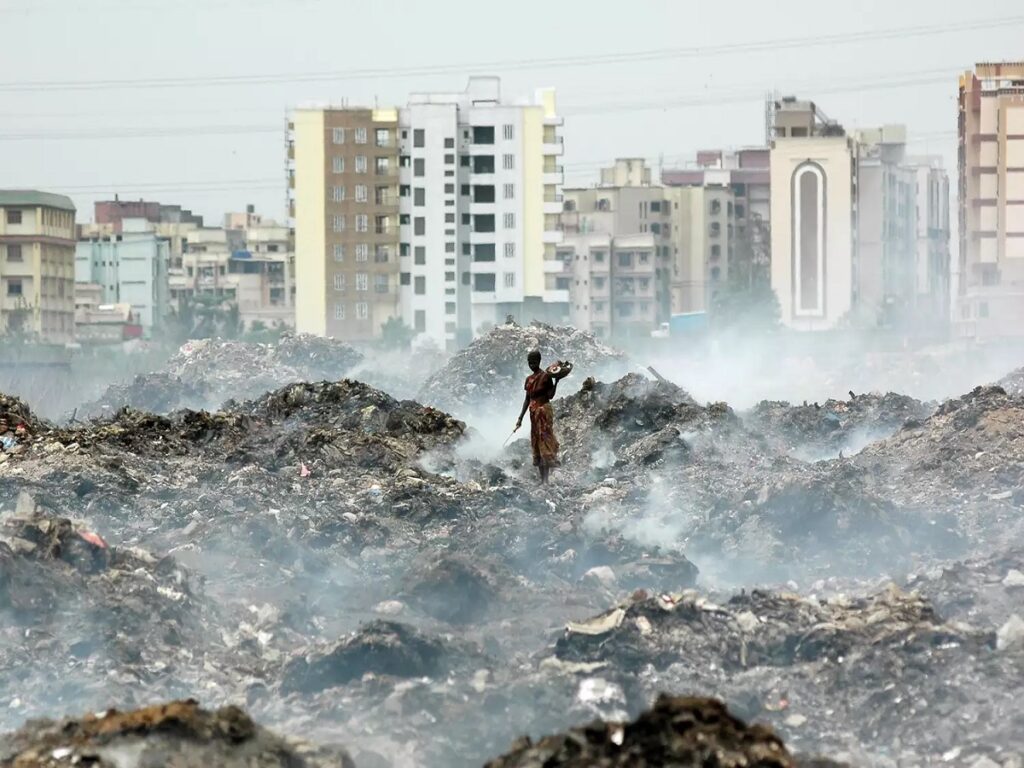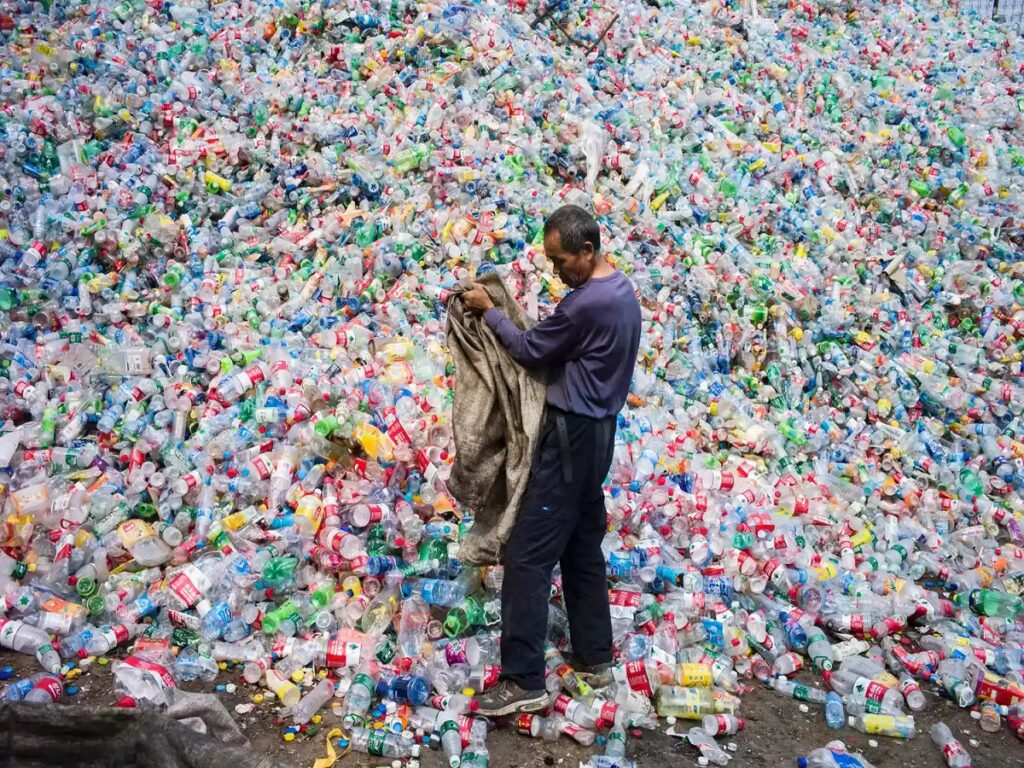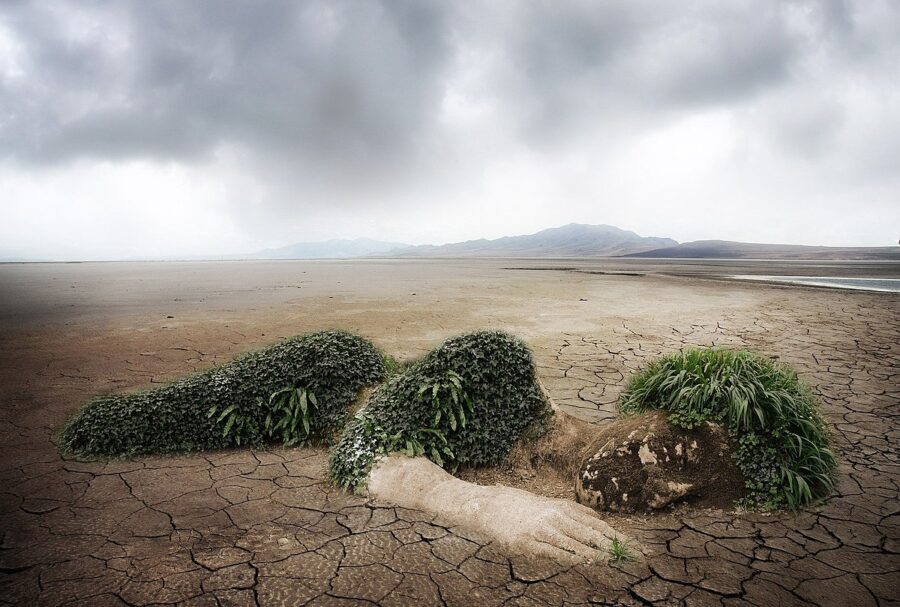Climate change denial is a belief held by some individuals who argue that global warming is either a hoax or solely a natural phenomenon unrelated to human activity. However, the overwhelming consensus among climate scientists is that human activities, particularly the burning of fossil fuels, contribute significantly to climate change.
Here, we will touch upon some of the sensitive topics on climate change i.e., Greenhouse gases, Rising Global Temperatures, Melting of ice sheets, an unprecedented rate of change, etc.
Let’s explore the evidence-based explanation that debunks climate change denial:
I. Scientific Consensus on Climate change:
The scientific consensus on climate change is a widespread agreement among climate scientists that the Earth’s climate is warming, and human activities, particularly the emission of greenhouse gases (GHGs) from burning fossil fuels and deforestation, are the primary drivers of this warming trend. The Intergovernmental Panel on Climate Change (IPCC), a leading international body of climate scientists, plays a crucial role in assessing and summarizing the scientific literature on climate change.

The IPCC reports consistently affirm the following key points that form the scientific consensus on climate change:
Climate is Warming: The Earth’s average surface temperature has been increasing over the past century, with the last few decades experiencing particularly rapid warming.
Human Influence: Human activities, especially the burning of fossil fuels (coal, oil, and natural gas), release significant amounts of greenhouse gases into the atmosphere, leading to an enhanced greenhouse effect and trapping heat, causing global warming.
Greenhouse Gas Concentrations: The concentration of greenhouse gases, such as carbon dioxide (CO2), methane (CH4), and nitrous oxide (N2O), in the atmosphere has risen substantially since the industrial revolution, primarily due to human activities.
Impact on Climate Extremes: Climate change is leading to more frequent and intense heatwaves, extreme weather events (storms, hurricanes, floods), and changes in precipitation patterns, which can have severe implications for ecosystems and human societies.
Melting Ice and Rising Sea Levels: The warming climate is causing the melting of glaciers and polar ice caps, contributing to rising sea levels, which poses a threat to coastal areas and low-lying regions.
Ocean Acidification: The oceans absorb a significant portion of the excess CO2 in the atmosphere, leading to increased acidity, which can harm marine ecosystems, particularly coral reefs and shellfish.
Consistency Across Studies: The evidence supporting human-induced climate change comes from multiple lines of research, including temperature records, ice core data, climate models, and observations of natural systems, all pointing to the same conclusion.
The scientific consensus on climate change is based on extensive research and data analysis conducted by thousands of climate scientists worldwide. While there may be ongoing discussions and debates on specific aspects of climate science, the overwhelming majority of climate scientists agree that human activities are driving global warming and its associated impacts. The recognition of this consensus is crucial for developing effective strategies to address climate change and its potential consequences for the planet and future generations.
II. Greenhouse Gas Emissions:
Climate change, driven by greenhouse gas emissions, is one of the most critical challenges facing our planet today. Greenhouse gases, such as carbon dioxide (CO2), methane (CH4), nitrous oxide (N2O), and fluorinated gases, act like a blanket in the Earth’s atmosphere, trapping heat from the sun and preventing it from escaping into space. While this natural greenhouse effect is essential for maintaining a habitable climate, human activities have significantly intensified it, leading to global warming and various climate-related impacts.
The burning of fossil fuels for energy, deforestation, industrial processes, and agricultural practices are the primary sources of greenhouse gas emissions. As these emissions increase, the concentration of greenhouse gases in the atmosphere also rises, amplifying the greenhouse effect. The consequences of this phenomenon are far-reaching:
Rising Temperatures: The Earth’s average surface temperature has been increasing, resulting in more frequent and intense heatwaves. Warmer temperatures also contribute to the melting of polar ice caps and glaciers, leading to rising sea levels.
Extreme Weather Events: Climate change intensifies extreme weather events such as hurricanes, storms, droughts, and heavy rainfall, causing devastating impacts on communities, agriculture, and infrastructure.
Ocean Acidification: The excess CO2 absorbed by the oceans leads to ocean acidification, threatening marine ecosystems, especially coral reefs and shellfish.
Disruption of Ecosystems: Climate change affects the distribution and behaviour of plant and animal species, leading to changes in ecosystems and biodiversity loss.
Water Resources: Changes in precipitation patterns and increased evaporation can result in water scarcity in some regions and more frequent and severe floods in others.
Agriculture and Food Security: Changes in temperature and precipitation patterns can impact agricultural productivity, potentially leading to food shortages and higher food prices.
Addressing climate change requires urgent and collective action on a global scale. Efforts to reduce greenhouse gas emissions include transitioning to renewable energy sources, improving energy efficiency, conserving forests, promoting sustainable land-use practices, and implementing policies to limit emissions from various sectors.
By taking meaningful steps to mitigate greenhouse gas emissions and adapt to the changes already underway, we can safeguard our planet for future generations. Cooperation among governments, businesses, and individuals is essential to combat climate change effectively and create a more sustainable and resilient world.
III. Rising Global Temperatures:
Climate change, characterized by rising global temperatures, is an urgent and alarming phenomenon with far-reaching consequences for our planet and all life forms. The Earth’s average surface temperature has been steadily increasing over the past century, primarily due to human activities that release greenhouse gases into the atmosphere, intensifying the natural greenhouse effect.

Greenhouse gases, such as carbon dioxide (CO2), methane (CH4), and nitrous oxide (N2O), act like a heat-trapping blanket, allowing sunlight to enter the Earth’s atmosphere but preventing some of the heat from escaping back into space. As human activities, particularly the burning of fossil fuels for energy production, deforestation, and industrial processes, continue to release large amounts of these gases, their concentration in the atmosphere rises, leading to an enhanced greenhouse effect and warming of the planet.
The consequences of rising global temperatures are profound and pervasive:
Melting Ice and Rising Sea Levels: Warming temperatures cause the melting of polar ice caps and glaciers, contributing to rising sea levels. This phenomenon poses a significant threat to coastal communities and ecosystems, exacerbating the impacts of storms and increasing the risk of flooding.
Extreme Weather Events: The increase in global temperatures is associated with more frequent and severe extreme weather events, including heatwaves, droughts, hurricanes, and heavy rainfall. These events can have devastating impacts on human societies, agriculture, and infrastructure.
Changes in Ecosystems: Rising temperatures affect the distribution and behavior of plant and animal species, leading to shifts in ecosystems and potential disruptions to food chains and biodiversity.
Ocean Warming and Acidification: The warming of the oceans has far-reaching consequences, including coral bleaching events that threaten marine ecosystems and coastal economies. Additionally, the absorption of excess CO2 in the oceans leads to ocean acidification, negatively impacting marine life, especially organisms with calcium carbonate shells or skeletons.
Threats to Agriculture and Food Security: Changing climate patterns can affect agricultural productivity, leading to shifts in growing seasons, changes in precipitation, and an increased risk of crop failure. These impacts can have severe implications for food security and global food production.
Addressing rising global temperatures and climate change requires collective and decisive action on a global scale. Efforts to mitigate this phenomenon include transitioning to renewable and clean energy sources, enhancing energy efficiency, implementing sustainable land-use practices, and reducing greenhouse gas emissions across all sectors.
By acknowledging the reality of rising global temperatures and taking immediate steps to mitigate climate change, we can work together to create a more sustainable and resilient future for our planet and future generations. It is vital to act now to protect our environment, preserve biodiversity, and ensure the well-being of all living beings on Earth.
IV. Unprecedented Rate of Change:
The current rate of global warming is a matter of grave concern as it stands unprecedented in the geological history of our planet. Over the past century, Earth’s average surface temperature has been rising at an accelerated pace, far exceeding natural variations observed in the past.
Throughout Earth’s history, climate fluctuations have occurred due to various natural factors, such as changes in solar radiation, volcanic eruptions, and shifts in Earth’s orbit. These past climate changes were typically gradual, occurring over thousands to millions of years, allowing ecosystems and species to adapt and evolve accordingly.

However, the current rate of global warming, attributed primarily to human activities releasing greenhouse gases into the atmosphere, is occurring at an alarming pace. The burning of fossil fuels, deforestation, industrial processes, and intensive agricultural practices have significantly increased the concentration of greenhouse gases, such as carbon dioxide (CO2) and methane (CH4), in the atmosphere. This intensifies the greenhouse effect, trapping more heat and causing the planet to warm rapidly.
Evidence from ice core samples, sediment records, and other paleoclimatic data reveals that the current rate of warming is unparalleled in at least the last 2,000 years. The speed at which temperatures are rising far exceeds any natural climatic variations observed in the geological record.
This unprecedented rate of global warming has severe implications for our planet’s ecosystems and human societies:
Melting Ice and Rising Sea Levels: Accelerated warming has led to the rapid melting of glaciers and polar ice caps, causing sea levels to rise. Coastal communities around the world face increased risks of flooding and displacement.
Extreme Weather Events: The intensified warming contributes to more frequent and severe extreme weather events, such as heatwaves, hurricanes, droughts, and heavy rainfall, resulting in devastating impacts on communities, agriculture, and infrastructure.
Ecosystem Disruptions: Natural ecosystems are struggling to adapt to the rapid temperature changes, leading to shifts in species distribution, disrupted food chains, and threats to biodiversity.
Ocean Acidification: The excess CO2 absorbed by the oceans causes ocean acidification, posing serious risks to marine life, particularly coral reefs and shellfish.
To address this pressing challenge, global cooperation, and immediate action are crucial. Transitioning to renewable energy sources, enhancing energy efficiency, protecting forests and natural habitats, and implementing climate-friendly policies are essential steps to mitigate the impacts of global warming.
By recognizing the unprecedented nature of current global warming and working collectively to curb greenhouse gas emissions, we can strive toward a more sustainable and resilient future for our planet and all its inhabitants. It is imperative that we take bold and decisive action now to safeguard the well-being of present and future generations.

V. Consistency across Multiple Lines of Evidence:
The evidence supporting anthropogenic climate change comes from multiple sources, including ice core samples, historical temperature records, satellite data, and climate models. All these lines of evidence converge to paint a consistent picture of human influence on the climate.
In conclusion, climate change denial is not supported by the vast body of scientific evidence. Human activities, especially the burning of fossil fuels, are the primary drivers of global warming and climate change. Recognizing this reality is crucial to taking effective action to mitigate the impacts of climate change and ensure a sustainable future for our planet.


